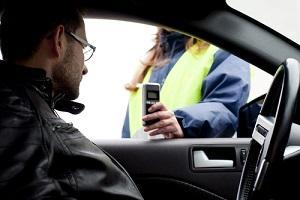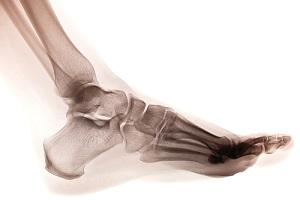Recent Blog Posts
Federal Judge Suppresses Evidence Obtained By Stingray
 When the police are trying to track down a suspect, they will often stop at nothing to find him or her. In many cases, such determination is understandable, as it is focused on getting a potentially dangerous individual off the street in the interest of public safety as well as enforcing the law. Sometimes, however, law enforcement officials can become overzealous, venturing into territory that risks violating a suspect’s Fourth Amendment rights. With the rise of digital technology, it can be difficult for criminal suspects to even know that their rights have been compromised, but a federal judge in New York recently issued a ruling that could prove to be very important to the future of criminal investigations.
When the police are trying to track down a suspect, they will often stop at nothing to find him or her. In many cases, such determination is understandable, as it is focused on getting a potentially dangerous individual off the street in the interest of public safety as well as enforcing the law. Sometimes, however, law enforcement officials can become overzealous, venturing into territory that risks violating a suspect’s Fourth Amendment rights. With the rise of digital technology, it can be difficult for criminal suspects to even know that their rights have been compromised, but a federal judge in New York recently issued a ruling that could prove to be very important to the future of criminal investigations.
United States v. Lambis
The case in question was the result of a drug investigation by the Drug Enforcement Agency (DEA). According to court records, the DEA legally acquired a suspect’s cell phone information, then obtained a warrant to access cell tower records in an effort to locate the phone. The cell tower data was only able to give DEA agents the general vicinity of the phone. The DEA then employed the use of a cell-site simulator, commonly known as a Stingray, to further track the suspect’s mobile device. The Stingray mimicked a cell tower, gathering information from the man’s phone, leading DEA agents to knock on his door while he slept. A subsequent search of the apartment led to the discovery of cocaine and drug paraphernalia. The man was arrested but sought to have the evidence suppressed based on the manner in which he and the evidence were found.
Your Rights and Responsibilities as a Pedestrian
 When a person is attempting to cross a busy street, he or she is in a very vulnerable position. Thousands of pounds of steel, rubber, and plastic are flying past, each vehicle capable of inflicting serious injury or death with just a single moment of inattention. In less than a second, the pedestrian’s life can be changed forever, and, in many cases, the results are beyond tragic. Pedestrian safety, however, is not entirely the responsibility of car and truck drivers; when you are walking, it is also up to you to ensure that you are following the rules of the road to help prevent unnecessary injuries and fatalities.
When a person is attempting to cross a busy street, he or she is in a very vulnerable position. Thousands of pounds of steel, rubber, and plastic are flying past, each vehicle capable of inflicting serious injury or death with just a single moment of inattention. In less than a second, the pedestrian’s life can be changed forever, and, in many cases, the results are beyond tragic. Pedestrian safety, however, is not entirely the responsibility of car and truck drivers; when you are walking, it is also up to you to ensure that you are following the rules of the road to help prevent unnecessary injuries and fatalities.
Marked and Unmarked Crosswalks
Downtown and urban areas can be incredibly frustrating for drivers and pedestrians alike. Too often, cars and trucks simply refuse to yield to those who are walking, while far too many pedestrians dart out into traffic. In many cases, neither drivers nor pedestrians really understand the applicable laws and who is supposed to have the right of way.
Connecticut Man Sues Police After Third Mistaken Identity Arrest
 Nobody is perfect. Every person makes mistakes from time to time, and, as such, human institutions are not perfect either. Law enforcement can be particularly challenging, with the wide range of variables and stressors with which officers must deal on a daily basis. When law enforcement agencies make an error, however, the lives of innocent individuals are often greatly affected in a negative way. Most reasonable people are willing to forgive an honest mistake, even if it causes a relatively significant inconvenience. But, what if the same mistake happens three times? That is exactly the situation facing a Bridgeport man who has been wrongly arrested three times by local police due to mistaken identity.
Nobody is perfect. Every person makes mistakes from time to time, and, as such, human institutions are not perfect either. Law enforcement can be particularly challenging, with the wide range of variables and stressors with which officers must deal on a daily basis. When law enforcement agencies make an error, however, the lives of innocent individuals are often greatly affected in a negative way. Most reasonable people are willing to forgive an honest mistake, even if it causes a relatively significant inconvenience. But, what if the same mistake happens three times? That is exactly the situation facing a Bridgeport man who has been wrongly arrested three times by local police due to mistaken identity.
Same Name, Different Men
Pedro Martinez, a 52-year-old man living in Bridgeport, has filed a lawsuit in federal court against the city of Bridgeport and its police department after he was wrongly arrested for the third time and detained for four days last summer. It seems that there is another man by the name of Pedro Martinez from Texas with an outstanding warrant for his arrest. Somehow, the suit alleges, Bridgeport police cannot seem to remember that the local Martinez is not the same man wanted in Texas and, during the most recent arrest, refused to use simple identification techniques to avoid a mistake.
Social Media, Surveillance Video Sink Suit Against Mall for Escalator Injuries
 Millions of times each day, Americans both young and old share a part of their lives on some type of online social media outlet. Social media use has become so culturally pervasive that nearly two-thirds of the adult population in the United States use Facebook or other networking sites. The number is significantly higher in certain demographics, with younger age groups reporting that 90 percent of them use social media. Sharing life’s big moments can certainly be a good thing, but oversharing can sometimes cause problems, especially if a post contradicts claims being made in a personal injury lawsuit for negligence and product liability.
Millions of times each day, Americans both young and old share a part of their lives on some type of online social media outlet. Social media use has become so culturally pervasive that nearly two-thirds of the adult population in the United States use Facebook or other networking sites. The number is significantly higher in certain demographics, with younger age groups reporting that 90 percent of them use social media. Sharing life’s big moments can certainly be a good thing, but oversharing can sometimes cause problems, especially if a post contradicts claims being made in a personal injury lawsuit for negligence and product liability.
The Injury
In late March 2011, a woman was shopping at a mall in Trumbull when she set off security alarms leaving a store. Instead of stopping, the woman reportedly walked away and began going down an escalator near the store’s exit. When the store security called to her and asked her to come back, she turned and started walking up the downward-moving escalator. The woman fell, fracturing her right ankle, which required several surgeries and left her with a permanent partial disability. Claiming the escalator was defective and dangerous, the woman sued the mall for negligence and the escalator manufacturer for product liability.
U.S. Supreme Court Expected to Rule on Warrantless BAC Tests
 In late April, the nation’s high court heard oral arguments in a case whose impact could be felt around the country. At issue before the Supreme Court is whether or not criminal penalties for refusing blood-alcohol content (BAC) test without a warrant violate a person’s Fourth Amendment rights. As it currently stands, 13 states maintain laws that make the refusal of such tests a crime, separate from the offense of driving under the influence (DUI). Many other states, like Connecticut, provide administrative penalties for refusing such a test rather than criminal prosecution.
In late April, the nation’s high court heard oral arguments in a case whose impact could be felt around the country. At issue before the Supreme Court is whether or not criminal penalties for refusing blood-alcohol content (BAC) test without a warrant violate a person’s Fourth Amendment rights. As it currently stands, 13 states maintain laws that make the refusal of such tests a crime, separate from the offense of driving under the influence (DUI). Many other states, like Connecticut, provide administrative penalties for refusing such a test rather than criminal prosecution.
Driving as a Constitutional Right
While the United States Constitution was drafted before the advent of the automobile, many believe that the ability to drive should be considered a right, not merely a privilege. The distinction is very important, as a privilege can more easily be conditional, while a right must be protected. The U.S. Supreme Court has never ruled that driving is a constitutional right, but has explicitly recognized the right to travel. If driving is a right, then a driver cannot be asked to waive his or her Fourth Amendment right to be free from unreasonable warrantless searches as a condition of driving.
Dump Truck Driver Wins Verdict for Trailer Accident Which Crushed His Foot
 Even the most experienced drivers can become distracted, and the consequences are often dangerous, as one Connecticut man was forced to learn painfully. In many cases, however, distractions may be considered negligence under the law, leaving a distracted driver liable for injuries or damages sustained as a result. Such was the situation in a New Britain courtroom recently, as the jury awarded more than $2 million in damages to a man whose foot had been crushed by a towed trailer.
Even the most experienced drivers can become distracted, and the consequences are often dangerous, as one Connecticut man was forced to learn painfully. In many cases, however, distractions may be considered negligence under the law, leaving a distracted driver liable for injuries or damages sustained as a result. Such was the situation in a New Britain courtroom recently, as the jury awarded more than $2 million in damages to a man whose foot had been crushed by a towed trailer.
Anger Over Parking
According to court records, the injured had parked the dump truck he was driving in a Farmington cul-de-sac in connection with a landscaping job for which he was partially responsible. The owner of the landscaping business, who was driving a pickup truck and towing a Bobcat on a trailer, pulled up extremely close behind the dump truck, reportedly to "chastise" the dump truck driver for how he had parked. When the owner finished, he went to drive away, and the 4-ton trailer drove over the dump truck driver’s right foot, causing a crush fracture. Surgery was not performed, but the accident allegedly also caused irreversible nerve damage and significant pain.
Study Challenges Scientific Basis for Marijuana DUI Laws
 When you are pulled over on suspicion of driving under the influence (DUI), it is reasonable to presume that you might be asked to submit to chemical testing for blood-alcohol content, or BAC. The most common form of testing is a breath test, commonly referred to as breathalyzer, which calculates the concentration of alcohol in a person’s blood based on alcohol detected in a breath sample. In all 50 states, the legal limit for BAC (for a non-commercial driver over the age of 21) is 0.08 percent. A test that registers above the limit creates a presumption of DUI based on a quantitative standard.
When you are pulled over on suspicion of driving under the influence (DUI), it is reasonable to presume that you might be asked to submit to chemical testing for blood-alcohol content, or BAC. The most common form of testing is a breath test, commonly referred to as breathalyzer, which calculates the concentration of alcohol in a person’s blood based on alcohol detected in a breath sample. In all 50 states, the legal limit for BAC (for a non-commercial driver over the age of 21) is 0.08 percent. A test that registers above the limit creates a presumption of DUI based on a quantitative standard.
Over the last several years, six states have instituted similar standards regarding the amount of marijuana in a driver’s system. With decriminalization and legalization efforts ongoing around the country and the implementation of medical marijuana programs in about two dozen states including Connecticut, many law enforcement officials believe that there needs to be a quantifiable way of determining that a driver is under the influence of marijuana. A new study from a very reputable source, however, suggests that the existing laws—along with those pending in other states—covering marijuana blood tests have no scientific basis, and even goes so far to recommend scrapping the statutes.
Stamford Jury Awards Man $2 Million for Head Injuries
 When you rent from a landlord, it is generally assumed that the property owner will keep common or shared areas safe and in compliance with building and safety codes. In many rental properties, staircases present the most danger, as even a single damaged step or slippery tread can lead to serious injury, and potentially, a lawsuit on the basis of premises liability. One such example can be found in the case of a man who fell down a flight of stairs, which his suit claimed did not have even a handrail, leading a Stamford jury to award him more than $2 million in damages.
When you rent from a landlord, it is generally assumed that the property owner will keep common or shared areas safe and in compliance with building and safety codes. In many rental properties, staircases present the most danger, as even a single damaged step or slippery tread can lead to serious injury, and potentially, a lawsuit on the basis of premises liability. One such example can be found in the case of a man who fell down a flight of stairs, which his suit claimed did not have even a handrail, leading a Stamford jury to award him more than $2 million in damages.
"His Life Changed Forever"
The man’s injury dates back to 2010, when he fell down a staircase that led to a room he was renting from a couple on Irving Avenue in Stamford. According to the injured man’s attorney and subsequent lawsuit, the victim suffered a fractured skull and other injuries that kept him the hospital for six weeks. Much of the hospital stay was reportedly spent in intensive care and the man’s skull injuries required surgery.
ACLU, Others Concerned Over Use of License Plate Readers
 While you have probably seen them on utility poles, overpasses, or mounted on the outside of police cruisers, they are probably not what you think. They appear to be cameras, and in today’s world, that would not be all that unusual. But, they are not regular surveillance cameras recording video for what most would consider “normal” security purposes. Instead, they are aimed in such a way that they can read the license plate of every passing vehicle, up to tens of thousands per hour, recording each plate and, according to law enforcement officials, assisting in the tracking of criminal suspects and stolen vehicles. There is growing concern, however, regarding the use of automatic license plate readers, and, perhaps more importantly, how the data they collect is stored and used to track innocent people without their knowledge.
While you have probably seen them on utility poles, overpasses, or mounted on the outside of police cruisers, they are probably not what you think. They appear to be cameras, and in today’s world, that would not be all that unusual. But, they are not regular surveillance cameras recording video for what most would consider “normal” security purposes. Instead, they are aimed in such a way that they can read the license plate of every passing vehicle, up to tens of thousands per hour, recording each plate and, according to law enforcement officials, assisting in the tracking of criminal suspects and stolen vehicles. There is growing concern, however, regarding the use of automatic license plate readers, and, perhaps more importantly, how the data they collect is stored and used to track innocent people without their knowledge.
Law Enforcement Applications
Connecticut Court Finds Gym, Trainer Liable for Member’s Stroke
 “Consult your physician before beginning any exercise program.” This disclaimer can be found on millions of workout DVDs and infomercials. It is meant to serve as a reminder that drastic lifestyle changes, even for the better, can be dangerous, and your doctor can help you take on the new challenges in a healthy, safe manner. But what if you are the doctor? And what if you join a health club and enlist the assistance of a paid personal trainer—a professional who is supposed to understand the body’s limits? The danger of injury is still very real, as it was exactly that situation in which a Connecticut man suffered a stroke following an intense exercise session. Earlier this year, a Connecticut Superior Court jury found the health club liable for the doctor’s injuries, returning a verdict of $14.5 million in his favor.
“Consult your physician before beginning any exercise program.” This disclaimer can be found on millions of workout DVDs and infomercials. It is meant to serve as a reminder that drastic lifestyle changes, even for the better, can be dangerous, and your doctor can help you take on the new challenges in a healthy, safe manner. But what if you are the doctor? And what if you join a health club and enlist the assistance of a paid personal trainer—a professional who is supposed to understand the body’s limits? The danger of injury is still very real, as it was exactly that situation in which a Connecticut man suffered a stroke following an intense exercise session. Earlier this year, a Connecticut Superior Court jury found the health club liable for the doctor’s injuries, returning a verdict of $14.5 million in his favor.
Pushing Through Limits
The doctor, a popular primary care physician, was 42 years old when he hired a personal trainer in 2011 at the Greenwich gym where he was a member. According to the man’s attorneys, the first four training sessions were without incident, but during the fifth, the trainer instructed the man to use a rowing machine. The trainer reportedly set the resistance on the machine to its maximum setting, and encouraged his client to do an “explosive pull.” When he did so, the doctor’s vision become blurry and he “did not feel right.” The trainer allegedly continued to push the man to finish his workout.






